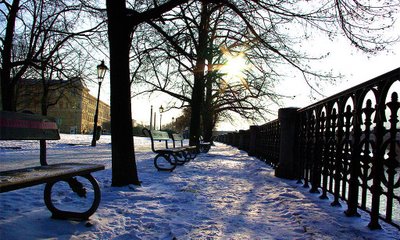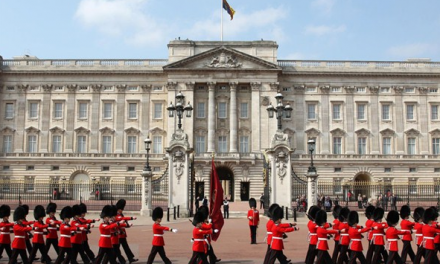Despite his merry look, a line says “Krtek plays the blues”. The picture is very familiar to me, because I know this kind of drawings from the children’s books that my grandparents then brought from Prague.
Among their legacy is also a children’s song in their language, but this is where the Czech part of my childhood ends.
Raised by a Czech father and a French mother in Bavaria, Germany, speaking German with my father and French with my mother, my childhood was rather more French than anything else.
My German history started with my first day at school and since then, I have been feeling entirely German. It’s the country I was brought up in, it’s the people I know, the culture I was taught. After the Velvet Revolution, I visited my father’s home country quite frequently.
Once he took me to a barbecue with friends of his, to whom he had to introduce me with the words: “She is my daughter but she doesn’t speak my language.” I found this so sad that I started taking czech lessons at university immediately. When they were called off, I spent a month at summer school in Prague twice, but I’m far from saying I’m more than a bloody beginner.
Maybe I enjoyed more my grandfather’s appartment that we had kept, and the cozy cafes and quiet tearooms all over the town, the cheap “parek v rohliku” and the great nights out that are so special in Prague (partly due to the innovative czech-international clubs and partly to the hideously greasy “klobasa” sausage that sobers you up in an instant). Or the odor of the rambling cobblestone alleys, the speed of the escalators in the underground, the noise of the trams.
And also, there’s this overwhelming feeling of home, “ma vlast”, when I’m in Prague. There’s this nagging longing to be there when I’m not. There lives the people I feel I somewhat belong to through my father, although I don’t understand them when they speak, and even so, they recognize me, physically, as one of theirs: They can tell I’m Czech from looking at me, and my mother says she sees me a hundred times when she’s in my father’s country. (Naturally, I also share the three national passions for gherkins, mushrooms and poppy seeds – not to mention the beer!)
You’ve most certainly seen folk musicians perform on the Old Town Square in summer. Listening to them stirs up the huge Czech part of my soul, and when they sing, my ancestors join in within myself.
Yes, I love them, for having been the underdogs in the past centuries, for their sense of humor they’ve developed out of this situation, for the sweet melancholy that imbues their otherwise pragmatic mentality – even for occasionally bein surly or grumpy, because I assume that comes from the fears they have (and who would blame them for feeling insecure after the immense changes they have gone through in this century – namely in the past decade!)
So here I am – a European with a German and a French passport and half a Czech heart. Torn between Cologne that I love and that I chose to be my hometown, the mountains of Bavaria where I was brought up, my French and, as I might have mentioned, my Czech legacy. Having said all this, I’m actually spending a year in London, not feeling too bad here either.
So better don’t ask me where I’m from or where my home is – I don’t have a clear answer to that question. I wish I had.
But at least, when my homelessness makes me feel sad, I know that this, too, is part of my Czech history: For my father, who must know it, maintains that the motto of Czech soul is: “Oh what joy do I find in suffering!”
Which is probably the reason why Krtek plays the blues.





